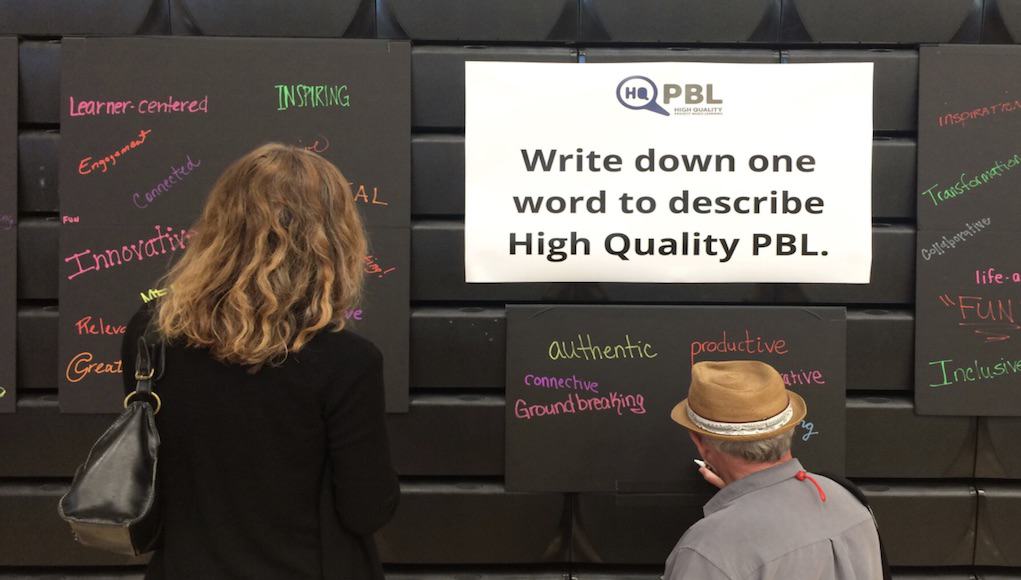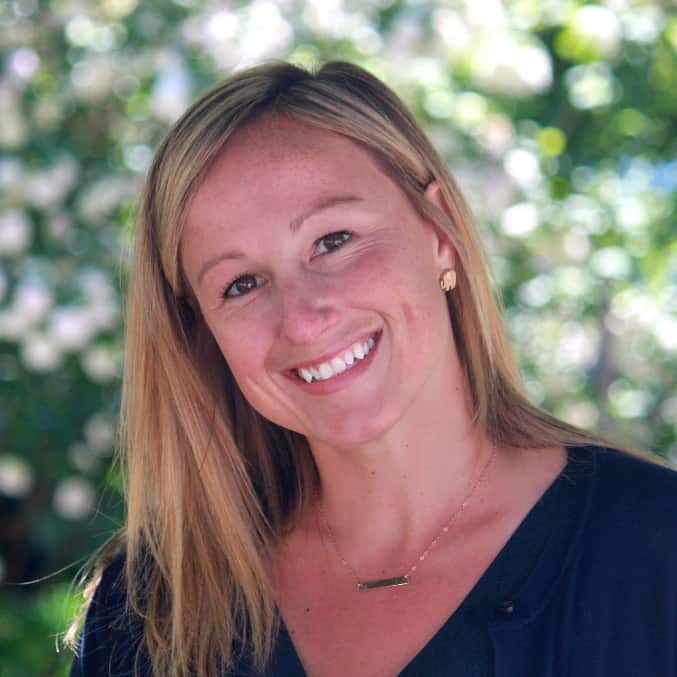PBL World Educators Focus on Process

Last week, over 1,250 educators convened in Napa Valley at PBL World for a three and a half-day conference, where educators come together to learn about, hone and expand their PBL craft. One of the biggest takeaways educators at PBL World shared is just how important process is.
Leaders Share About the Importance of Process
Speakers at PBL World highlighted the importance of process and not just ‘producing projects for the sake of doing projects’. Bob Lenz, Executive Director of the Buck Institute for Education, reminded educators that PBL is all about the journey. Educators will experience many successes throughout their PBL journey, but facilitating high quality PBL does take time and practice. Speaker Stephanie Chang, Director of Programs at MakerEd, shared stories about students who worked diligently through the project process to produce meaningful work and it was this process that ultimately lead them to deeper learning.
Every leader stressed process, but they also each mentioned how encouraging it is that so many educators are experiencing, using and excited about PBL. They shared their own beginnings as PBL educators, which often included lots of trials, many student successes and a refreshed and renewed sense of purpose in the classroom.

Carlos Moreno, Co-Executive Director at Big Picture Learning (pictured above), shared similar sentiments and emphasized that he wished he stuck to the PBL process with students more when he was teaching. He eloquently described that sticking with the process, is really sticking with students – no matter the challenge you face – that is why we do this work. He elaborated that through PBL we should continue to iterate and improve upon the following three processes:
- Learn how to engage every student through sustained inquiry.
- Guide students from the beginning of a project all the way to the end and ensure projects are relevant and meaningful, and that they apply to the real world.
- Learn how to take core content and use it to fuel meaningful projects.
Educators at PBL World dug in, discussed and debated these processes of PBL. They learned that isn’t just going to be students who navigate the project process, but they too need to experience the highs, lows, failures and successes of truly high quality PBL. The importance of process is evident in planning, facilitation, presentation and even the questions you ask students to encourage them to persist in their own PBL process. This emphasis was clear in conference sessions at PBL World.
At facilitator Kevin Armstrong’s (Coach at Katherine Smith Elementary School, winner of the 2017 PBL School of the Year) session, educators actively discussed different student personas and how they would ensure that in the process of PBL planning and implementation they consider and incorporate each student’s academic and social and emotional needs.

Why Process?
Why focus on the process so much? Well, it’s true, if not “managed effectively,” then project-based experiences can be frustrating and not tap into the potential of each student. Critics share that projects can end up being fluff and not really engage students on a deeper level.
This is exactly why high quality PBL, especially the PBL process, is so important.
Great facilitators know how to create balance, understand when PBL makes sense as an approach and use effective processes and protocols with students to ensure each student feels supported, heard and engaged in sustained inquiry (sometimes in a group or as individual scholars).
Facilitating PBL experiences that don’t skip out on processes can lead to deeper learning and understandings. These experiences are key to developing graduates that feel empowered, have a sense of self and know they can have the skills to persist and tackle challenges in work and life.
What kind of processes are we talking about? Processes might include a portion of a project where students work to develop their own driving questions, determine the product they want to create and explore their own interests. It might be going through a specific protocol process that helps structure time when students collaborate with and get feedback from other students (in their own classroom, in another state or from somewhere else around the world). Or processes in projects that require students to iterate, revise and demonstrate how they incorporated (or why they made a decision not to) new ideas into their products.
Take the time. Trust the process(es). You won’t regret it.
These processes are often left out of the conversation but are incredibly important when it comes to implementing high quality PBL. In the draft Framework for High Quality PBL (visit hqpbl.org to share your feedback on the draft) we share four proposed categories for high quality PBL: processes, products, principles and purposes. The processes included in the draft Framework mimic those that were expressed as being important by educators at PBL World:
Processes. In High Quality PBL, students:
|

Catina Taylor, founder of Dreams KC and 4.0 Schools Tiny Fellowship recipient, shared thoughts with educators about how to take passions and turn them into an actionable plan. She, too, described that understanding the process is essential but that true change in teaching practice demands it.

PBL World is a community of dedicated educators from around the world coming together, creating and growing a path forward for themselves and ultimately the students they serve. I encourage you to attend next year’s PBL World and/or one of the many other great PBL conferences and institutes offered throughout the year (here are a few). Whether your school is using PBL or not, the process of learning about and experiencing projects will inevitably grow you as an educator, and in turn be beneficial for your students.
For more, see:
- Does Your Teaching Have the 4 Categories of High Quality PBL?
- What We Are Doing to Ensure High Quality PBL For All
- 35 Leaders on the Successes and Challenges of Project-Based Learning
- 30 Leaders on the Successes and Challenges of Project-Based Learning
This blog is part of the High Quality PBL project. This project is supported by the Project Management Institute Educational Foundation (PMIEF) and the William and Flora Hewlett Foundation. For more, see hqpbl.org and follow @BIEpbl for all the latest news and resources on high-quality project-based learning and use hashtag #PBL.
Stay in-the-know with all things EdTech and innovations in learning by signing up to receive the weekly Smart Update. This post includes mentions of a Getting Smart partner. For a full list of partners, affiliate organizations and all other disclosures, please see our Partner page.








0 Comments
Leave a Comment
Your email address will not be published. All fields are required.